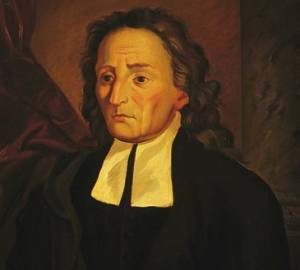Vico’s Place in the Philosophy of Literature and of History
(From work in progress on the philosophy of literary judgement) Vico gives us the first major work of philosophy, and the first major work of historiography, which puts literature at the centre (The New Science). There had been much history that was also literature, and much philosophy that was also literature. Aristotle’sPoetics discusses the philosophical status of poetry and history, giving the higher status to poetry. However, no one had tried to write a theory of history, and a philosophy of the knowledge of society, which put literature at the centre. For Vico, we understand the earliest history through an interpretation of Homer, which tells us about the heroic age. Homer had influenced thinking about the archaic era of the small kingdoms of Greece, which preceded the Greek Dark Age, but it was Vico who argued that we need to put the study of Homer at the centre of our knowledge of law and institutions in the archaic age. Vico makes the dubious claim that the earliest peoples spoke in poetry, but in doing so sets up the idea that poetry is at the centre of human action, history, and metaphysics. That claim is supposed to provide a foundation of jurisprudence, but clearly not in such a way as to look at history as the history of law codes. Law codes themselves have a historical context in language, and the earliest poetic use of language. Aristotle had already suggested a distinction between theoretical and practical reason, between knowledge of objects and rules of human action. Vico goes further in suggesting that knowledge of human history must have characteristics distinct from knowledge of the physical universe, which requires systematic study of language and poetry. The approach to language and poetry refers to rhetorical studies of a kind going back to Aristotle. Vico introduces something distinct though, in which we are not just concerned with language as persuasion, but the basis of understanding human history. Language is not just rhetorical or an instrument of cognition, it is how we construct and understand the historical human world. The nature of law, and its accompanying institutions, depends on the nature of language. History begins with the words in which primordial giants react to lightening, in a first act of linguistic creation. This synthesising, integrating and dynamic understanding changes the status of literature in history and philosophy, and our ways of understanding literature. Vico’s New Science is the greatest work of literary criticism since Aristotle, though lacking in much discussion of the qualities of specific literary texts. Despite the concentration in Homer, there is not much insight into The Iliad and The Odyssey as particular works; comments on literature are very schematic . The focus is on a general view of what connects literature and the ‘heroic age’, that is what we now call Mycenaean, or Bronze Age Greece.
Vico establishes a new beginning in understanding literature because of the social significance of the literary text, its hermeneutic possibilities, and its place in the general use of language, and puts literature on a new level. It is the way of understanding literature which is necessary for comprehending Cervantes, and the novel since then. That is the work of literature as a poetic, multi-faceted, ironic, subjective but universal, kind of writing. Vico only discusses irony very briefly in the context of the ‘age of reflection’ (presumably Classical Athens). What he says about Roman law is full of aesthetic significance, how it transforms poetry and drama into judicial principles, including the idea of legal personhood itself. It points towards an understanding of the novel. Other work of the time like that of Montesquieu, Burke and Hume, contributes in various ways to this understanding of literature after epic and rhetoric, but it is Vico who puts it at the centre of historical knowledge, transforming the understanding of literature and history, the development of laws and institutions, as embedded in the ambiguities and communicative complexities of communication. A phase opens with Vico, which in some respects ends in Kierkegaard with his focus on subjectivity, communication, irony and paradox in philosophy, literature, and opera.
Stocker, Barry. “Vico’s Place in the Philosophy of Literature and of History.” Feb 7. <http://barrystocker.blogspot.com/2013/02/vicos-place-in-philosophy-of-literature.html>.
